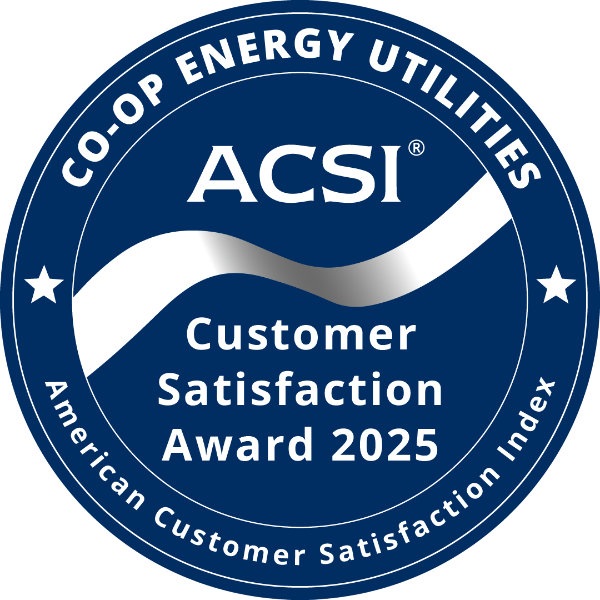When demand is low, wholesale power is less expensive. Off-peak enables Polk-Burnett members to take advantage of reduced rates for electric hard-wired heat and/or electric water heaters of 80 gallons or greater that can be controlled or temporarily turned off for economic reasons or during periods of high demand.
A recent review of electricity peaks in the MISO (Midwest Independent System Operator) system revealed that 60% of peaks occurred in the morning. This has resulted in modifications to our load/energy management program to help sustain grid reliability.
CHANGES TO ELECTRIC HEAT CONTROL HOURS STARTING NOVEMBER 1, 2022.
Full Load Control (FLC) will take place in the morning and economic control events in the evening (as in the past), but FLC and economic control will not happen on the same day.
Members wanting prior notification of control events can sign up below using the Load Control Notification Enrollment form.
**Reminder: The Wednesday prior (11/19/25) to the week of Thanksgiving is the annual load control test date. This load control test is performed in advance of the winter Full Load Control season to ensure members are familiar with how the control affects their home and to make sure that backup heating systems are responding properly. The control event will begin at approximately 6:55 a.m. and all controlled loads will be fully restored by 11:00 a.m. Participating load control and off-peak members who have signed up for load control notifications will receive notification the evening prior (November 18). Participating load control and off-peak members who are not currently receiving load control notifications and would like to can enroll below.
Load Management FAQs
Full load control (FLC) typically takes place when demand for electricity is peaking in the mid-west (MISO market)
Economic control takes place when the market price is too high to pass onto the membership.
Many anticipated economic controls do not take place, but could if the need arose.
Anticipated number of winter control events:
Full load control (FLC) - 6:55 a.m. - restoral begins at 10:05 a.m.
December, January, February
Max 7 events for the season
Max 3 events per month
** Notification sent out the evening prior to the morning event (if you enroll in load notification)
Economic control - possible evening events (we have had a few evening water heater control events but not electric heat)
November, December, January, February, March, April
Electric resistance heat (no back up) - 10 events (5 p.m.- 8 p.m.)
Electric resistance heat (with back up) - 30 events (5 p.m. - 9 p.m.)
Small water heaters - 10 events (5 p.m. - 9 p.m.)
Large water heaters - 10 events (5 p.m. - 10 p.m.)
Dairy water heaters - 2 events (5 p.m. - 10 p.m.)
** Notification sent out approximately 1-2 hours prior to control event (if you enroll in load notification)
Note: Most Electronic Thermal Storage (ETS) and large water heaters are controlled on a daily basis.
Members wanting prior notification of control events can sign up using the Load Control Notification Enrollment form on this webpage.
If you are not sure how your control is set up, call 800-421-0283 ext. 595 and we can provide that information based on your off-peak load(s).
If you have added automatic backup heat or removed automatic back up heat, make sure you call us to update your control times to accommodate those changes.
When we reduce energy use during peak demand times, we forestall the need to build new, expensive electricity generation facilities and transmission equipment to meet your electrical needs. Load management also provides for more efficient use of the facilities we have, which helps keep rates affordable.
Controlling is done with a Comverge (approx. 6” x 8”) or Entek (approx. 2” x 4”) radio receiver with indicator lights.

- Green lights indicate power to the receiver.
- Yellow lights indicate control of A/C and electric resistance heat, such as baseboard and heat pumps.
- Red lights indicate control of all participating water heaters and storage heat such as Steffes electric thermal storage heaters and Marathon® 80-105 gallon water heaters.
- No lights in the overnight hours - typically in the overnight hours there are no lights in the receiver. To save money we do not pay to send out signals overnight.
- No lights in the receiver during the day - the breaker which supplies the radio receiver may be shut off or the LED light may be burnt out.
If there is a blinking yellow light on the receiver, please call for a service signal to be sent out to clear the receiver.
If at any time the power to the radio receiver is interrupted, power to the water heater/electric heat is delayed 7-10 minutes after power is restored to the receiver. During this time you may notice all of the receiver lights going on/off until the correct control signal is locked in.
Under normal conditions, you should not run out of hot water. If you do, please call Polk-Burnett, 800-421-0283, ext. 595. We can help diagnose if you are having a problem with the water heater or if the problem is related to the control time. In most cases we can change the control time if needed.
Members with electric resistance heat (baseboard or heat pumps) and no storage or thermostatically controlled fossil fuel backup heat can expect to be without heat for up to four hours during a control period.
Members with an automatic backup storage or thermostatically controlled heating system can expect to be off for up to six hours during a control time.
It is the homeowners responsibility to make sure that there is adequate heat to kept the pipes from freezing during a control event. If your home is heated by baseboard only, you may want to look into adding a thermostatically controlled backup heat, such as an ETS unit or gas fireplace. You may want to check your home for proper insulation levels also to help retain the heat in the home. Polk-Burnett offers a rebate for home testing and subsequent improvements based on the test results.
If you have removed your backup heat or added additional heat to your home, please contact Polk-Burnett so that we can adjust your load management control times as this may affect how well your home stays heated during a control event.
If you wish to receive load control event notifications sign up using the Load Control Notification Enrollment form on this webpage.
If you would like to receive notification of a load control event, please fill out the form on this load management page to enroll.
Once enrolled you will receive a notification via phone call, email, or text as you requested.
For FLC events you will receive the notification the evening prior to the morning event.
You may or may not receive advance notification of an economic load control event. (They try to provide a 1-2 hours advance notice if possible - if you are signed up to receive load control notifications)
If you have electric heat with no automatic backup heat source you may wish to receive these notifications to allow you to turn up the heat for an hour or so prior to your baseboard or geothermal system being shut off.

